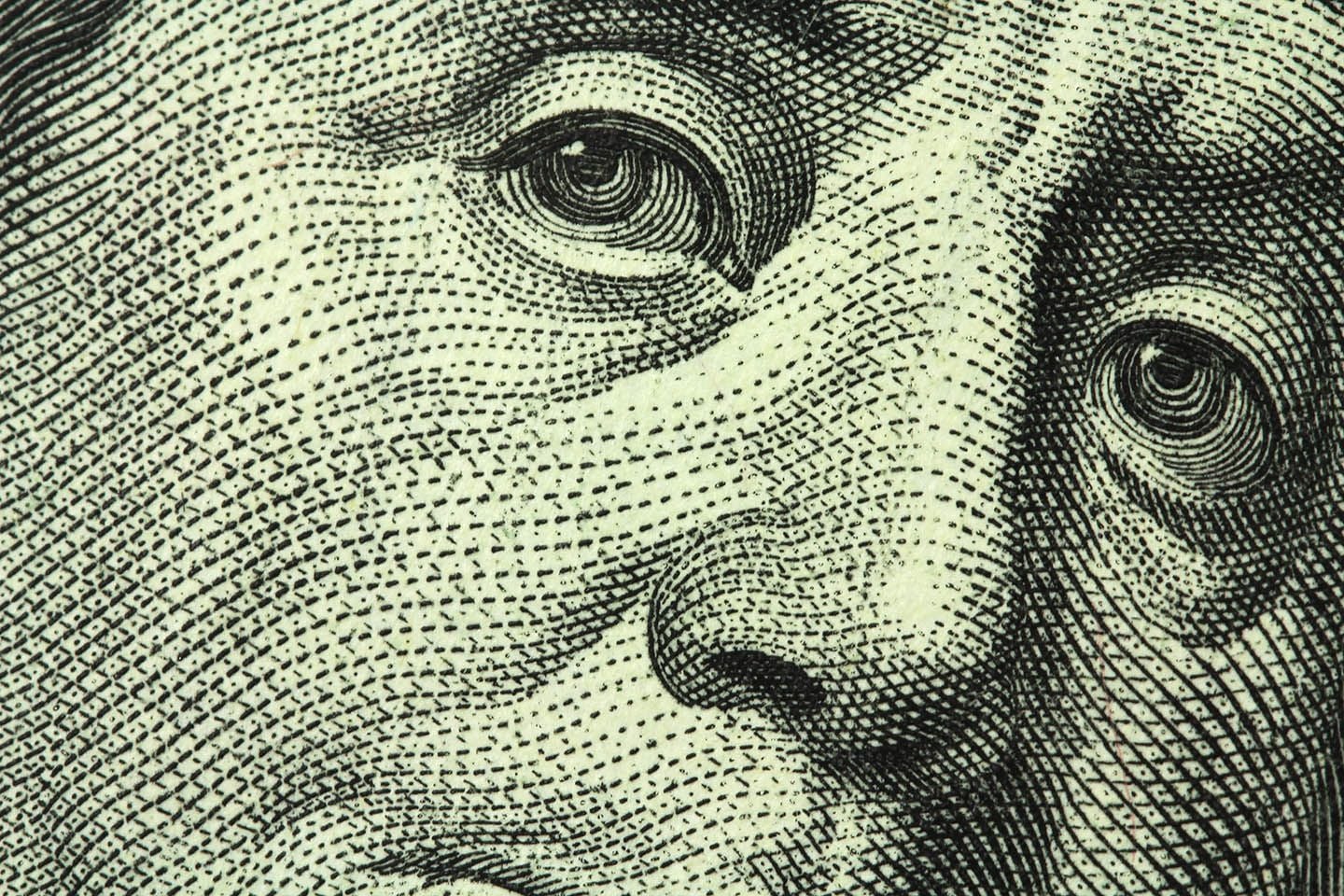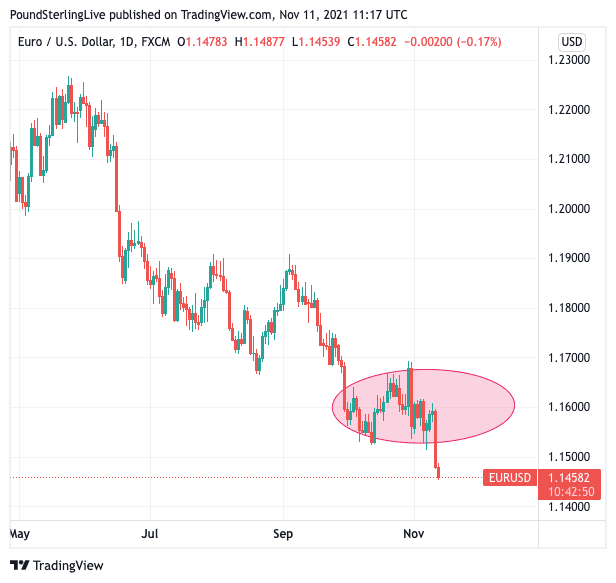"Overvalued" U.S. Dollar Could Struggle from Here: Crédit Agricole
- Written by: Gary Howes

Image © Adobe Images
The Dollar is the best performing major currency of the past month and the past week, but it is looking pricey at current levels and foreign exchange analysts at Crédit Agricole expect it to be "stopped in its tracks".
The Dollar's rally picked up a head of steam in the midweek session when it was revealed U.S. inflation reached a 30-year high in October, pushing the Euro-Dollar exchange rate below 1.15 and bringing an end to the October-early November consolidation.
The Pound-Dollar exchange rate fell to its lowest levels since December 2020 at 1.3380, extending a downtrend that has been in place since June.
"The USD seems unstoppable, rallying on the back of stronger-than-expected U.S. inflation and employment data in recent days," says Valentin Marinov, Head of G10 FX Strategy at Crédit Agricole.
- EUR/USD reference rates at publication:
Spot: 1.1458 - High street bank rates (indicative band): 1.1057-1.1137
- Payment specialist rates (indicative band): 1.1355-1.1400
- Find out about specialist rates, here
- Or, set up an exchange rate alert, here
Marinov attributes some of the Dollar's recent strength to Federal Reserve President Jerome Powell's comments that soaring U.S. inflation is his top priority, which led to the repricing of swifter and more aggressive Fed policy normalisation in the coming quarters.
Faced with surging inflation the Fed could accelerate the speed at which it 'tapers' its quantitative easing, meaning it ends earlier and the prospect of a first rate hike comes closer.
Crédit Agricole finds the U.S. Dollar could be attracting support from international investors who see it as a hedge against inflation seek "protection against the currency debasement policies of many G10 central banks at present and the detrimental impact they have on their fiat currencies."
However, regarding the Dollar's outlook, much of theses themes are now well understood by the market.
"We doubt that the Fed would be able to meet the already hawkish market expectations and abandon its ‘patient’ view on rates before we see further improvement from the US employment data. This could keep US real rates and yields deeply negative and ultimately hold the latest USD rally in its tracks," says Marinov.
The latest rally in the U.S. currency has Crédit Agricole describing the currency as both "overbought and overvalued".
{wbamp-hide start}
{wbamp-hide end}{wbamp-show start}{wbamp-show end}
The Dollar's trend of appreciation does however appear to be well entrenched, and calling a turn is a risky proposition.
Swedbank strategist Anders Eklöf says the Dollar is to appreciate in value on solid economic growth as the drag from the delta variant fades and positive yield differentials vs. many G10 peers offer support.
Swedbank's economists anticipate the maximum employment and slack in the U.S. labour market is lower than Fed has anticipated.
"If so, rates will need to be raised sooner rather than later and USD will benefit," says Eklöf.
DNB's FX Analyst Ingvild Borgen said this week "the spread between USD and EUR interest rates could continue to rise, favouring a further drop in the EURUSD going forward."
Both DNB and Swedbank have updated their Euro-Dollar forecasts to show further losses in the exchange rate are likely.
"We continue to see upside risks for the US dollar over the medium term stemming from an underpriced Fed. Powell's reluctance to push back on market pricing of hikes was followed by his comment that the US economy could see full employment next year," says Ben Randol, FX strategist with Bank of America.
Bank of America interpret action following November's Fed communication as being consistent with an FX market that still sees the Fed as wanting to run the economy hot.
"This combined with a potentially faster pace of taper in 1H still suggests that the risks are asymmetric in the direction of tighter than expected US monetary policy," says Randol.






